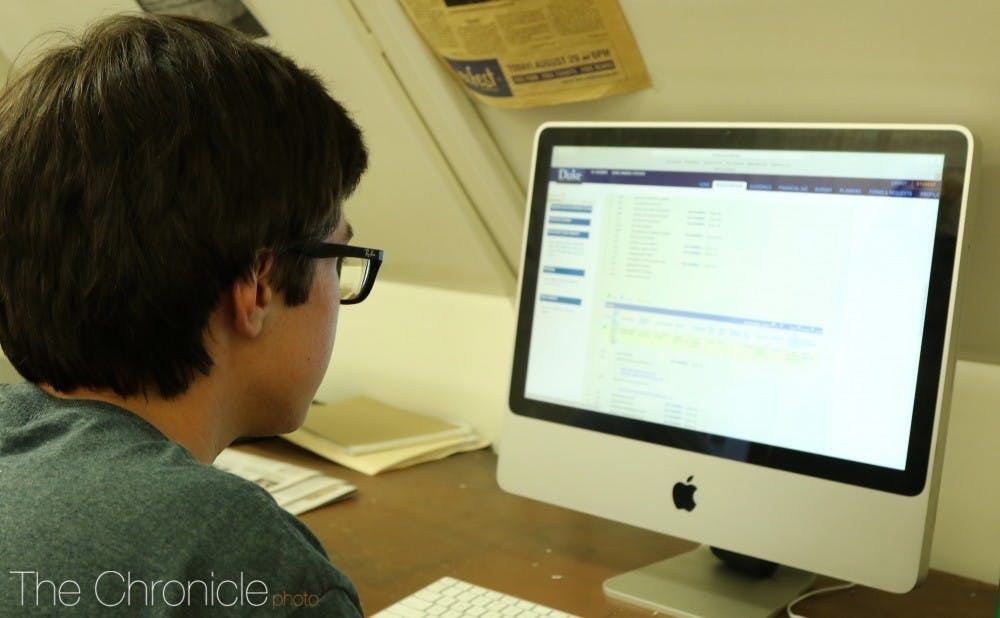In light of the COVID-19 pandemic, many students are scrambling to find new summer plans after their original arrangements, including internships, travel, research, DukeEnage and study-abroad program, were canceled. To help students in this struggle, Duke has expanded its normal catalogue of summer classes. By partaking in summer classes, students can catch up or get ahead in their academic pursuits while waiting for the pandemic to end so that they can resume other activities.
During Summer Session II, students can choose one or two classes in a traditional six-week term from June 29 to Aug. 9 or take one class in an intensive four-week term from July 7 to July 30. This year, all summer classes will take place online.
Many arts students may be hesitant to take more virtual classes due to unfavorable experiences with the format this spring. Compared to STEM and social science courses, arts courses may be less conducive to the remote platform because they are typically smaller and more interactive. They also generally require more participation and engagement from students, who might have conflicts now due to potential time differences and difficult circumstances at home. Although the challenges of remote learning are numerous, so are the potential benefits of this educational experiment.
For instance, Professor Maurizio Forte of the Department of Art, Art History and Visual Studies noted that the remote teaching format forces students to pay close attention to their screen in order to stay on top of what is happening in the class. In this format, he was also able to incorporate a lot of multimedia learning tools and innovative technology into his Summer Session II course, Why Art?, which explores the purpose of art and its role in human societies from the time of cavemen all the way to the future of virtual reality.
Perhaps the most fascinating aspect of Forte’s class is the use of a 3D virtual collaborative room, where students become avatars in the cyberspace of a virtual gallery designed by Forte and can interact or communicate with each other.
“This special embodiment is able to recreate the sense of presence in a new environment such as, in this case, a virtual gallery or room. So the interaction in that space is different, and the production of information inside of it is different,” Forte said. “This is another example of the fact that we can use the virtual space in a more sophisticated way.”
Besides such technologically advanced arts classes, there are also other options for students who want to keep up to date with the ongoing crisis and figure out how our society is changing during the pandemic. Jacob Smith, a lecturing fellow in the Thompson Writing Program, is offering a class called Democracy & Crises. The class is cross-listed in both Writing and Political Science and examines how democracies address crises of various forms and how different crises might threaten the very idea of democracy.
More specifically, the course is divided into three units. The first unit focuses on important authors in political philosophy, such as Alexander Hamilton, John Locke and Abraham Lincoln, especially their writing on executive power. The second unit explores various contexts of crises, including pandemics, wars and terrorism, and the third unit takes a look at how film and TV portray the question of democracy in crises with a special analysis of “The West Wing.” Accompanying the third unit is an interesting assignment that asks the students to write a short story or a movie/television script based on a course-related scenario.
“There is a question in our country about maintaining the integrity of the election. There is also another problem: If a democratic country doesn’t handle a crisis well, is it perceived as being effective? How will that affect public opinion? Will people in that country give up on democracy? Will they say it doesn’t do a good job of addressing these crises?” Smith said. “There are definitely threats to [democracy right now].”
That is indeed food for thought. But for students already looking ahead into the post-pandemic future, they could also benefit from taking summer classes by pondering and discussing where our society is heading to next. For example, Maggie McDowell, a fifth-year graduate student in the English department, is teaching a class called I, Robot that provides such an opportunity. This course intends to analyze human beings’ hopes and fears for an artificial-intelligence-powered future, delving into questions of robotic ethics by studying short stories, television and film, namely “Metropolis,” “Blade Runner” and “Ex Machina.”
“I think we’re in a moment where people are really being called to reevaluate how important human relationships are to them...And one of the questions I’m hoping to explore in this course is whether progress just for the sake of doing the next cool thing is really a meaningful thing for society, or whether there’s some element of basic humanity that’s still important and worth hanging onto,” said McDowell.
Beyond these three highlighted courses, there are plenty of interesting choices offered this summer through various arts departments at Duke. For more COVID-19-related courses, students can also check out Educational Impact of COVID-19, the COVID-19 Infodemic and the History of Global Health.
Get The Chronicle straight to your inbox
Sign up for our weekly newsletter. Cancel at any time.

